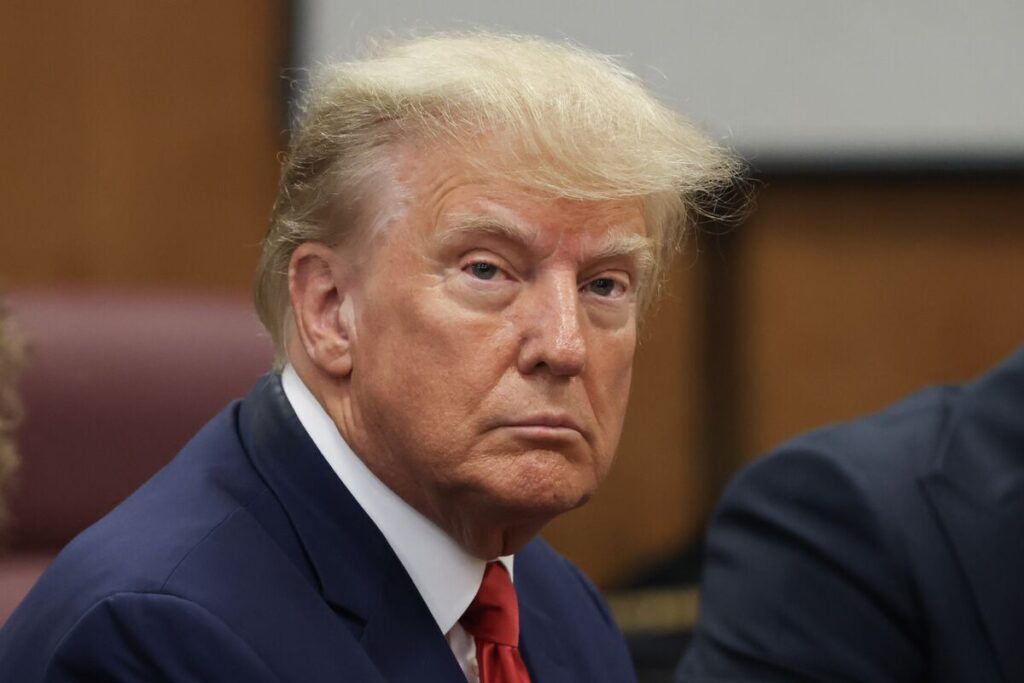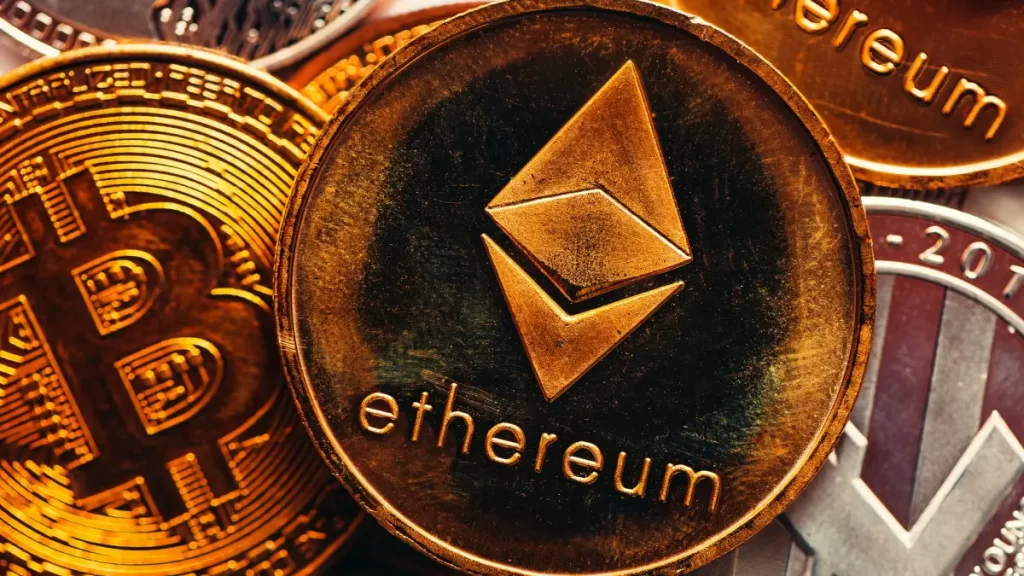A court in California has handed down a significant ruling in a case that has been ongoing for over two years, involving Crowd Machine and Metavine, the creators of Crowd Machine Compute Tokens (CMCT).
The court has ordered them to pay over $20 million in disgorgement, interest, and penalties, and also found the companies’ founder, Craig Sproule, liable for his role in the case.
The legal troubles for Craig Sproule began in January 2022 when the United States Securities and Exchange Commission (SEC) filed a lawsuit against him, alleging that the 2018 initial coin offering (ICO) for CMCT constituted a “fraudulent and unregistered” securities sale.
Alongside this accusation of unregistered securities sales, it was also claimed that Sproule had misused and lost $5.8 million of the $33 million he had raised during the ICO.
CMCT was initially designed with the aim of reimbursing computer owners for lending their computing power and compensating programmers for their coding efforts. Unfortunately, the tokens never became operational.
As part of the initial legal action, Sproule was fined $195,047 and instructed to cease operations of CMCT, including removing it from the one cryptocurrency exchange where it had been listed. Importantly, the defendants did not admit or deny any wrongdoing.
READ MORE: Mt. Gox Trustee Advances Towards Bitcoin Repayments with Identity Verification Confirmation
On January 17, the District Court of Northern California issued an amended final judgment that ordered the defendants to disgorge a total of $19,676,401.27, along with an additional $3.4 million in prejudgment interest.
Furthermore, Metavine was found liable for disgorgement of $5 million of the total amount, and both defendants were directed to pay civil penalties of $600,000 each.
In its statement dated January 24, the SEC highlighted that the previous consent judgments had already resolved the SEC’s action against Mr. Sproule, leaving the court to determine the monetary relief for the remaining defendants.
It is noteworthy that initial coin offerings (ICOs) were once a common method for launching cryptocurrencies until the SEC classified them as securities sales in July 2017.
Subsequently, the SEC has pursued numerous legal cases against ICO issuers.
Craig Sproule founded Metavine in 2013, which is described as a “no-code software development platform.”
However, Metavine reportedly filed for bankruptcy on January 3. On the other hand, Crowd Machine is described as a “unified cloud platform.”
Former President of the United States and current presidential candidate, Donald Trump, recently revisited the contentious topic of central bank digital currencies (CBDCs), attributing the resurgence of the discussion to Vivek Ramaswamy, a former Republican presidential candidate who withdrew from the race following disappointing results.
At a rally held in Laconia, New Hampshire, on January 22, Trump acknowledged Ramaswamy as the catalyst for rekindling the CBDC debate.
Notably, Ramaswamy was the sole presidential candidate who had included a crypto framework in his campaign platform.
Trump, somewhat humorously, confessed to his initial dislike for Ramaswamy until defeating him in the race. He then reiterated his firm stance against the implementation of a CBDC in the United States.
This was not the first time that Trump had voiced his opposition to CBDCs. During a campaign speech in Portsmouth, New Hampshire, on January 17, he unequivocally stated, “I will never allow the creation of a central bank digital currency.”
Trump underscored his concerns by emphasizing that such a digital currency would grant the federal government “absolute control” over citizens’ financial transactions.
Trump’s stance on cryptocurrency had not been particularly nuanced in the past, apart from a few negative comments about Bitcoin during his presidency.
However, the issue gained prominence in the presidential campaigns of Vivek Ramaswamy and Florida Governor Ron DeSantis, both of whom have since suspended their campaigns.
Ramaswamy withdrew from the race on January 16 and threw his support behind Trump.
Similarly, DeSantis officially ended his presidential bid on January 21, after facing a substantial defeat to Trump in the Iowa caucuses.
READ MORE: Elon Musk’s xAI Disputes $500 Million Investment Claim Amidst Valuation Talks
He also endorsed Trump’s candidacy, despite being the subject of ridicule from the former president in recent months.
On January 19, U.S. Representative Tom Emmer joined the chorus of support for Trump’s commitment to opposing CBDCs.
Emmer emphasized his eagerness to collaborate with Trump in combatting what he referred to as the “expanding government surveillance state.”
Emmer has consistently advocated for digital assets and has a history of pushing back against the regulatory approach pursued by the U.S. Securities and Exchange Commission (SEC) and its Chair, Gary Gensler.
In summary, Trump’s resolute rejection of CBDCs has resurfaced thanks to the encouragement of Vivek Ramaswamy, a former presidential contender, and has garnered support from individuals like Tom Emmer who share concerns about the implications of a government-controlled digital currency.
The debate surrounding CBDCs continues to evolve within the context of American politics and cryptocurrency regulation.
For over two years, Pablo Moncada, the co-founder of MoonDAO and his decentralized autonomous organization (DAO), have been diligently working towards a remarkable objective – establishing a self-sustaining colony on the moon.
Their audacious timeline for this endeavor? Just under seven years from now. This formidable goal has been set by Moncada and the 5,000-member-strong MoonDAO, founded in 2021.
Moncada perceives DAOs as a solution to the longstanding issue of space exploration being inaccessible to the general populace.
He believes that his model could revolutionize space travel and interstellar exploration, potentially leading to human habitation on the moon by 2030.
While he acknowledges the inherent challenges and uncertainties, he remains undeterred in his pursuit.
Space exploration has historically been dominated by government space programs and well-funded private companies.
MoonDAO, often referred to as “the internet’s space program,” aims to democratize space research and travel by enabling everyday people to contribute to these endeavors.
While MoonDAO hasn’t yet achieved the monumental feat of sending humans to the moon, it has already achieved a significant milestone.
In November of the previous year, MoonDAO conducted a historic vote, sending Coby Cotton, a member of the YouTube channel Dude Perfect, into space aboard one of Jeff Bezos’ Blue Origin spaceships.
This marked the first time a DAO had sent someone into space, symbolizing a groundbreaking moment for space exploration and decentralized funding.
In Moncada’s perspective, MoonDAO’s greatest contribution lies in its novel approach to capital raising for space research and exploration.
Historically, governments relied on taxes and national budgets to fund space research.
More recently, private companies like SpaceX and Blue Origin have attracted private investors while still receiving substantial government contracts.
READ MORE: Bitcoin Inches Closer to $42,000 Amidst Uncertain Market Sentiment
MoonDAO, however, leverages the power of coordination among people worldwide who share a passion for space exploration.
Moncada draws a historical parallel, citing the 1500s when joint stock corporations were invented to finance voyages to explore new territories.
He believes that, similarly, we will witness the emergence of new tools, such as DAOs, to fund future space missions.
MoonDAO co-founder Moncada is no stranger to ambitious goals, having previously worked on ConstitutionDAO, which aimed to raise $49 million to purchase the only physical copy of the United States Constitution.
Even though many DAOs, including ConstitutionDAO, may fall short of their lofty objectives, Moncada believes that striving for audacious goals is more rewarding than not trying at all.
While DAOs are praised for their innovative potential, they also face challenges stemming from differences in opinions and backgrounds among members.
Moncada humorously refers to DAOs as “dudes arguing online” in acknowledgment of these challenges.
As for the grand vision of establishing a self-sustaining moon colony by 2030, Moncada emphasizes the value of setting ambitious goals, comparing it to the audacity of Kennedy’s call to land on the moon in 1961 when space exploration was in its infancy.
He believes that as the DAO ecosystem continues to grow, access to capital may rival that of governments, paving the way for a new era in space exploration funding.
The United States House Financial Services Committee is increasing pressure on Meta to reveal its intentions regarding blockchain and cryptocurrency.
This scrutiny stems from the existence of five cryptocurrency and blockchain-related trademark applications that have remained active since 2022.
In a letter dated January 22, Maxine Waters, the ranking member of the committee, addressed Meta’s founder and CEO, Mark Zuckerberg, as well as operating chief Javier Olivan.
Waters pointed out that these trademark applications, all filed on March 18, 2022, “appear to represent a continued intention to expand the company’s involvement in the digital assets ecosystem.”
This assertion contradicts Meta’s previous statement to Democratic Financial Services Committee staff on October 12, 2023, in which they claimed that there was no ongoing work related to digital assets within the company.
It’s worth noting that Meta had abandoned its plans for the Diem cryptocurrency stablecoin (formerly known as Libra) back in mid-2019 due to pressure from lawmakers.
READ MORE: Elon Musk’s xAI Disputes $500 Million Investment Claim Amidst Valuation Talks
They eventually sold Diem to the now-defunct Silvergate Bank for $200 million in January 2022.
Additionally, Meta’s plan to launch a digital wallet called Novi (formerly Calibra) by 2020 has also faltered, with no indication of a new release date.
The trademark filings encompass a range of services related to cryptocurrency and blockchain assets, including trading, exchange, payments, transfers, wallets, and the associated hardware and software infrastructure.
Meta has received a Notice of Allowance (NOA) for each of these filings, indicating that the applications meet registration requirements.
Within six months, Meta must either file a statement confirming its intention to use the trademark or request a six-month extension to file the statement.
Meta’s deadline to respond to the first NOA, sent on August 15, 2023, is February 15. The latest NOA, sent on January 16, grants Meta until July 16 to respond.
Waters has posed several critical questions to Meta, including how the company plans to address the NOAs, whether it is pursuing projects related to Web3, cryptocurrency, or digital wallets, and if it intends to launch a cryptocurrency payments platform.
She also inquired about Meta’s research on stablecoins and potential partnerships with stablecoin projects, its interest in adopting distributed ledger technology (DLT), and how its technology might enable crypto-related functions within its metaverse.
As of now, Meta has not responded to requests for comment on these matters.
The trustee overseeing the recovery of the hacked cryptocurrency exchange, Mt. Gox, has taken significant steps toward repaying creditors in Bitcoin (BTC) and Bitcoin Cash (BCH).
Recent reports indicate that Mt. Gox creditors have been contacted to confirm their identities and the existence of their exchange accounts, a crucial step in the reimbursement process.
Numerous Mt. Gox creditors have received emails from the trustee, notifying them of the successful completion of identity verification for their crypto exchange accounts.
These accounts will be utilized to facilitate the repayment of BTC and BCH. In a notification posted on Mt. Gox’s insolvency hub on Reddit on January 22nd, it was revealed that a crypto exchange mentioned in a user’s rehabilitation claim had confirmed the ownership of the account with the trustee.
Consequently, the exchange is now poised to accept the user’s subscription to the agency receipt for receiving repayment in BTC or BCH.
However, the email also issued a cautionary note, stating that users might face difficulties in receiving repayment if their accounts are disabled or frozen in the future.
Numerous Reddit users have confirmed receipt of such emails from the Mt. Gox trustee, with the majority of confirmations originating from the Bitstamp exchange.
Some Kraken users also reported receiving confirmation emails, while others have not yet received any communication from the trustee.
Interestingly, certain exchanges involved in the repayment process have informed their users that they will continue serving Mt. Gox-related customers in specific countries, despite their withdrawal from those jurisdictions.
Bitstamp, for instance, which ceased operations in Canada on January 4, 2024, announced that it would continue servicing local accounts engaged in the Mt. Gox settlement.
However, these accounts will have limited functionality, restricted to withdrawals only, with deposits and trading no longer available.
These developments coincide with the trustee’s progress in facilitating bank account repayments. Reports of the first Mt. Gox repayments surfaced in late December 2023, and some creditors even received double payments during this phase.
Founded in 2010, Mt. Gox was once the world’s largest Bitcoin exchange, handling approximately 70% of all BTC transactions.
However, it suffered a massive security breach in 2014, resulting in the loss of 850,000 BTC and making it one of the largest crypto bankruptcies in history.
Mt. Gox is now on track to repay its creditors a total of 142,000 Bitcoin and 143,000 Bitcoin Cash, along with 69 billion Japanese yen (approximately $510 million) by October 2024.
The fee war in the Bitcoin exchange-traded fund (ETF) arena has now crossed the Atlantic to Europe. This development follows the recent approval by the United States Securities and Exchange Commission (SEC) of Bitcoin ETFs in the United States, marking a significant shift in the financial landscape.
In the lead-up to the SEC’s approval on January 10th, many applicants in the U.S. continually adjusted their S-1 filings to reduce their ETF fees. Now, a similar trend is emerging in Europe among listed exchange-traded products (ETPs).
Two prominent asset management firms, Invesco and WisdomTree, have taken a bold step by slashing fees on their European-listed ETPs by over 60%.
Invesco’s $137 million Physical Bitcoin ETP will see its fee drop from 0.99% to a mere 0.39%, while WisdomTree’s $325 million Physical Bitcoin ETP will see its cost decrease from 0.95% to 0.35%.
It’s worth noting that in Europe, digital asset exchange-traded products are structured as exchange-traded notes (ETNs), a distinction from funds.
ETN investors hold debt securities, while ETF shareholders have a stake in the fund’s underlying assets.
READ MORE: Terraform Labs, Behind Defunct TerraUSD, Files for Bankruptcy Amid Ongoing Legal Battle
The significant fee reductions can be attributed to increased competition and the proliferation of multiple ETFs in the U.S., a leading global financial market.
Previously, U.S.-based investors had to look to Canadian and European-based ETPs for investment opportunities.
However, with the SEC’s green light for 11 spot Bitcoin ETFs in the U.S., the demand for European ETPs from U.S. investors has markedly diminished.
Gary Buxton, Invesco’s Head of ETFs for Europe, explained in an interview with the Financial Times that the multitude of ETFs in the U.S. adjusted their fees to establish a “new equilibrium between supply and demand.” This led to considerably lower prices compared to existing ETPs in Europe.
U.S.-based Bitcoin ETFs have an advantage over their European counterparts in terms of liquidity and accessibility.
They are available on a single exchange platform, making them more convenient for European investors.
The recently launched spot Bitcoin ETFs in the U.S. have witnessed massive trading volumes from day one and continue to trade billions of dollars in daily volume, further strengthening their appeal to investors on both sides of the Atlantic.
This fee war signals a shifting landscape in the world of digital asset investment, with investors benefiting from reduced costs and increased options as competition heats up in both the U.S. and Europe.
The Ethereum ecosystem is making significant strides toward reducing gas fees and enhancing transaction speeds for layer-2 rollups with the introduction of the Dencun upgrade on the network’s testnets in early 2024.
The Dencun network upgrade was activated on the Goerli testnet on January 17, bringing forth several Ethereum Improvement Proposals (EIPs).
Among these, EIP-4844 is particularly noteworthy, as it enables proto-danksharding, a highly anticipated improvement aimed at lowering L2 transaction fees.
However, the deployment of Dencun to Goerli initially encountered a four-hour delay due to a bug in Ethereum’s proof-of-stake client, Prysm.
Nebojsa Urosevic, co-founder of Ethereum development platform Tenderly, explained that network synchronization delays are common but also serve as an essential part of identifying and resolving such bugs.
The bug, as revealed by Ethereum Foundation protocol lead Tim Beiko, was linked to Prysm incorrectly setting the historical roots value to 0, preventing the Goerli testnet from finalizing the Dencun upgrade.
Dencun incorporates nine different EIPs, with proto-danksharding and blob transactions being the most eagerly anticipated.
Proto-danksharding offers improved scalability through the use of blob-carrying transactions, which are more efficient and cost-effective than traditional calldata, potentially reducing costs by 80%–90%.
Following its successful implementation on Goerli, the Sepolia and Holesky testnets are next in line to undergo the Dencun upgrade.
All three testnets must demonstrate successful deployment before considering an upgrade to Ethereum’s mainnet.
READ MORE: US Rep. Tom Emmer and Former President Trump Unite in Opposition to CBDCs
One of the significant impacts of the Dencun upgrade is storage efficiency. Ethereum sidechain Gnosis’ infrastructure director, Philippe Schommers, explained that Dencun will offer more block space and lower costs to layer-2 solutions.
Data previously stored indefinitely on-chain will now be discarded after two weeks, improving efficiency and reducing costs.
As a result, Dencun promises lower gas fees and faster transactions, paving the way for more complex applications on layer-2 solutions.
Rollups, in particular, stand to benefit greatly from reduced operational costs and improved scalability.
Anurag Arjun, co-founder of data availability blockchain Avail, highlighted the growing demand for block space from rollups and suggested that protocols like Avail could help address these demands.
Recent benchmarks of Avail’s zero-knowledge Ethereum Virtual Machine Validium have demonstrated a 90% reduction in transaction fees while providing decentralized and secure data availability guarantees.
In summary, the Dencun upgrade marks a significant step toward addressing scalability issues on the Ethereum mainnet, offering greater storage efficiency, lower gas fees, and an improved development experience.
Rollups and complementary protocols are set to play a crucial role in further enhancing Ethereum’s ecosystem.
Coinbase’s Chief Legal Officer, Paul Grewal, has criticized the United States Government Accountability Office (GAO) for its recent report on cryptocurrency use in evading sanctions.
In a post on X (formerly Twitter) on January 22, Grewal expressed his disapproval, accusing the GAO of failing to conduct a meaningful comparative analysis and instead targeting an industry that invests heavily in complying with the law.
He pointed out that buried within the report were admissions that digital assets are not an effective way to circumvent sanctions.
The GAO report in question was released on December 13, 2023, and the federal response was published on January 16.
The report claimed that some foreign states facing U.S. sanctions had utilized cryptocurrencies like Bitcoin to evade these sanctions.
However, it also acknowledged that digital assets have inherent limitations, such as their decentralized nature and public ledger, which can be used by U.S. agencies and analytics firms to trace transactions and identify illicit actors.
Furthermore, the report conceded that the use of digital assets for payments is limited, and implementing global standards could enhance compliance with Anti-Money Laundering (AML) regulations.
READ MORE: Bitcoin ETFs: Game Changer or Threat to Crypto’s Core Principles?
Despite these findings, Senator Elizabeth Warren seized upon the report to voice concerns about the crypto industry and push for stricter AML regulations.
Critics were quick to point out that the report only cited one instance of cryptocurrency use to evade sanctions, involving a Chinese party.
Moreover, major regulatory bodies and policymakers worldwide have been implementing frameworks to align cryptocurrency with AML guidelines, including the Markets in Crypto-Assets Regulation in Europe and similar regulations in Asian countries like Hong Kong, Japan, and Singapore.
A crucial point often overlooked is that the proportion of cryptocurrency used for illicit activities is less than 1% of the total circulating supply, significantly lower than that of fiat currencies like the U.S. dollar.
Instances of stolen or hacked crypto funds taking years to move due to the public ledger system are rare, and crypto exchanges often identify and block them.
In contrast, the United States has yet to finalize its crypto regulations, despite persistent calls from policymakers.
Nevertheless, specific regulatory policies are already in place to govern crypto service providers, helping to maintain compliance and prevent illicit activities within the industry.
The popular dog-themed meme cryptocurrency, Dogecoin (DOGE), experienced a surge in its value this past week, reaching its highest point in seven days, amidst the unveiling of the new “XPayments” account on X, formerly known as Twitter.
This new account quickly amassed over 100,000 followers, creating a buzz in the cryptocurrency community.
Between the late hours of January 20 and the early hours of January 21, DOGE recorded a remarkable 12.8% increase in its value, hitting a weekly high of $0.08978, according to data from Cointelegraph Markets Pro.
However, in the subsequent 24 hours, its value retraced by approximately 4%, and it is currently trading at $0.08330.
The XPayments account, while yet to make any posts, has sparked speculation among traders regarding its potential payment functions.
Given X’s owner, Elon Musk’s, occasional references to DOGE, traders believe that the cryptocurrency might play a role in the platform’s future offerings.
READ MORE: US Rep. Tom Emmer and Former President Trump Unite in Opposition to CBDCs
Musk has previously incorporated DOGE into his ventures, allowing DOGE payments for Tesla’s merchandise and even temporarily changing Twitter’s logo to Dogecoin’s logo, resulting in a 22% surge in DOGE’s price when he assumed control of Twitter in April 2023.
In a further development, Musk hinted that payments on X would be launched sometime around mid-2024. In preparation for this, in 2023, Musk’s company applied for money transmitter licenses in various United States jurisdictions.
This move signifies Musk’s ongoing interest in the integration of cryptocurrency into mainstream platforms, which has been a driving force behind the fluctuating fortunes of DOGE.
The recent surge in DOGE’s value highlights the ongoing influence of key figures like Elon Musk and the impact of cryptocurrency integration into popular platforms.
As the crypto community eagerly awaits further details about XPayments and its potential adoption of DOGE, the cryptocurrency market remains dynamic and ever-responsive to external developments.
With Musk’s track record of sparking enthusiasm for DOGE, the crypto world will be closely monitoring any future announcements and developments related to this intriguing partnership between Dogecoin and X.
A Colorado-based online pastor, Eli Regalado, who stands accused of fraud for promoting a seemingly worthless cryptocurrency, has confessed to the charges, attributing his actions to a divine directive.
In a rather peculiar nine-minute video shared on the official INDXcoin website, Regalado, the founder and spiritual leader of INDXcoin, acknowledged the veracity of the accusations against him and his partner, Kaitlin Regalado.
He candidly admitted, “The charges are that Kaitlin and I pocketed $1.3 million dollars, and I just want to come out and say those charges are true.”
On January 18, the Regalados faced charges of fraud, stemming from their involvement in creating and promoting a fraudulent digital token named INDXcoin, as revealed by the Colorado Securities Commission.
Colorado Securities Commissioner Tung Chan expressed, “We allege that Mr. Regalado took advantage of the trust and faith of his own Christian community and that he peddled outlandish promises of wealth to them when he sold them essentially worthless cryptocurrencies.”
Regalado targeted Christian communities in Denver, asserting that divine revelation had assured him that INDXcoin investments would lead to prosperity.
READ MORE: Bitcoin ETFs: Game Changer or Threat to Crypto’s Core Principles?
Between June 2022 and April 2023, INDXcoin purportedly raised close to $3.2 million from over 300 investors via a platform known as the Kingdom Wealth Exchange, with a significant portion of funds originating from the online-only Victorious Grace Church, where Regalado serves as pastor.
Regalado disclosed that a portion of the raised capital went towards taxes, while a substantial amount was allocated for divine-guided home renovations.
The Kingdom Wealth Exchange ceased operations on November 1, 2023, with Regalado citing financial constraints, asserting that he and Kaitlin were facing financial hardship.
Simultaneously, he conveyed a message from God to INDXcoin holders, urging them not to sell the token and to break free from the pursuit of material wealth.
Despite their admission of impending financial struggle, the lawsuit filed against the Regalados alleges that they lavishly spent the majority of the $1.3 million, indulging in cosmetic dentistry, luxury handbags, snowmobiles, home improvements, and extravagant vacations.
Cointelegraph reached out to Regalado for comment but received no immediate response.












